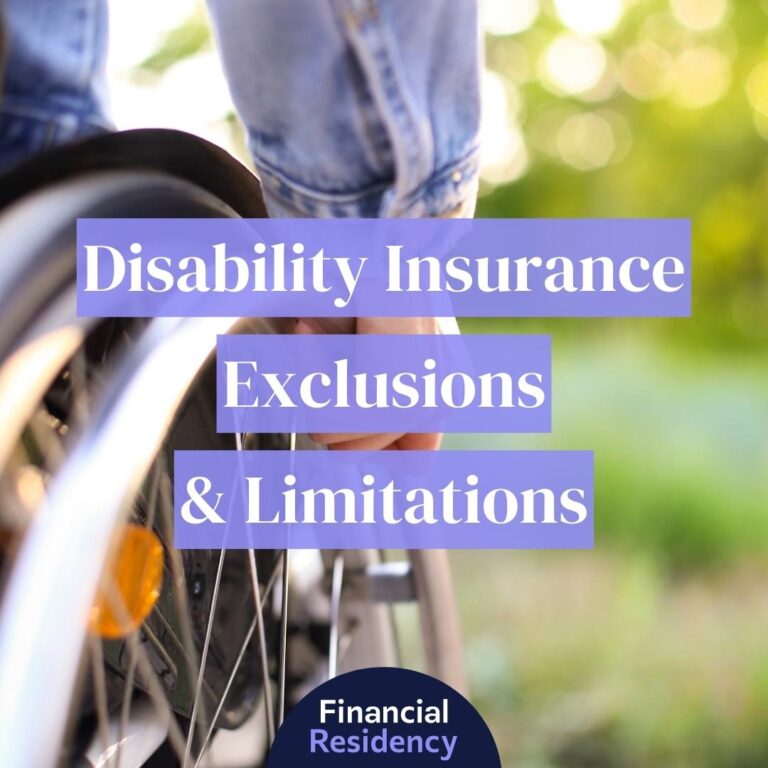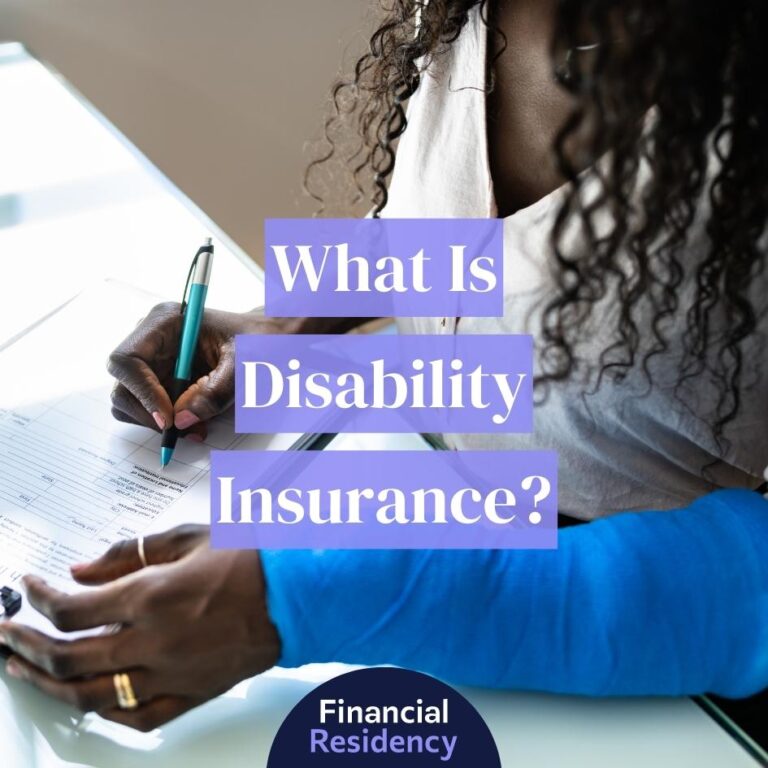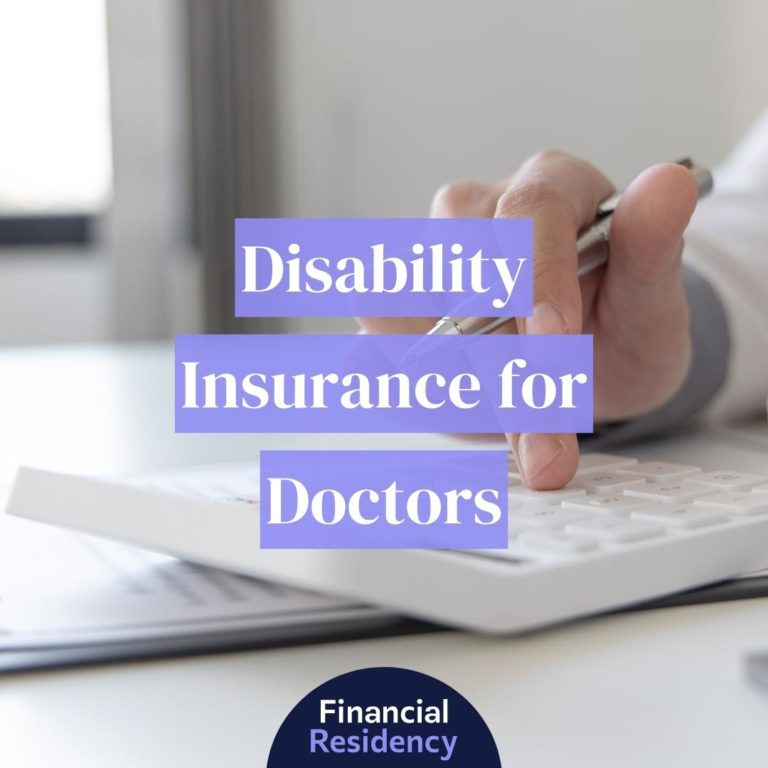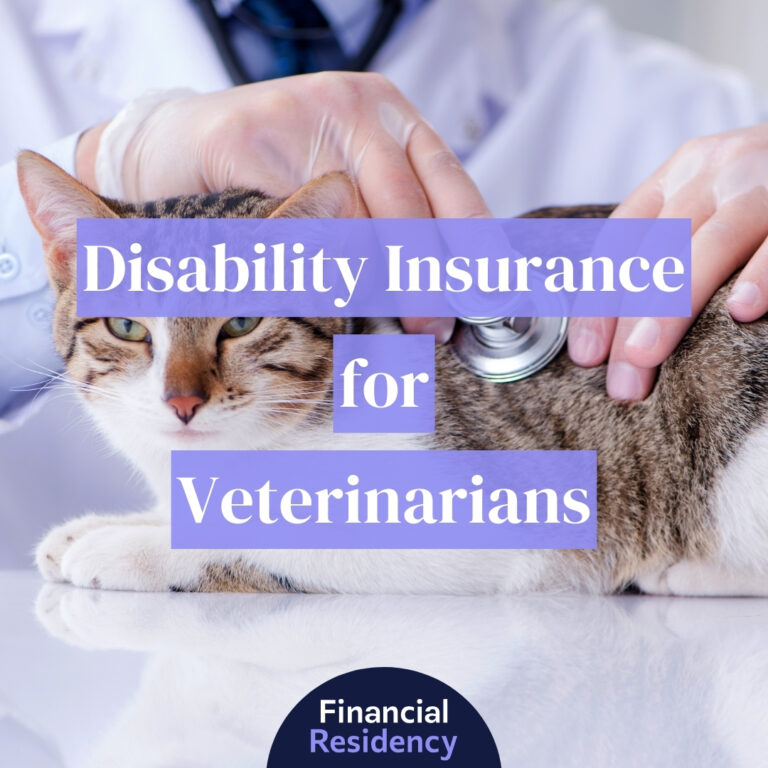Disability insurance covers up to 60% of your income if you become disabled, but it comes at a cost. Like all insurance policies, you must pay a monthly premium.
Is adding another bill to your already large stack of student loan debt and other obligations worth it?
For most people, the answer is yes, but here’s what you should consider.
What Is Disability Insurance?
Disability insurance protects you financially if you become disabled from illness or injury. If you cannot work for an extended period, you may get a payout from your insurance company to cover your expenses.
Contrary to what most people think, disability insurance protects you in all situations of disability, such as heart attack or stroke. It’s not only coverage for a spontaneous accident.
Learn More:
Is Disability Insurance Worth It?
Many people wonder if they need disability insurance. Here are some reasons to consider it:
- You have a high income you can’t replace with savings – If you became disabled today, would you have the funds to live your lifestyle without working?
- You have a lot of debt – If you have a lot of debt, especially student loan debt, disability insurance ensures you stay on track with your payments even if you can’t work.
- You don’t have money saved – Disability insurance covers you if you can’t work for months or years. You might have enough money saved to cover a few months or even a year of expenses, but what happens after that?
Considering these factors, disability insurance is often worth it; however, like any insurance, you must understand the cost and terms to determine its worth.
Cost of Disability Insurance Coverage
On average, disability insurance costs 1% to 3% of your annual income, but like any insurance, the cost varies based on many factors.
Some of the factors include:
- The elimination period – Policies with shorter elimination (waiting) periods have higher premiums and vice versa
- Policy term – Short-term disability policies usually cost less than long-term policies
- Age – The younger you are, the lower your premiums may be
- Lifestyle – If you have risky lifestyle habits, such as smoking, working a dangerous job, or other habits that put your life at risk, your premiums will increase
- Income – The higher your income, the more you cost to insure, which means higher premiums.
Types of Disability Insurance
There are two types of disability insurance – short and long-term insurance.
Short-Term Disability
Short-term disability insurance lasts up to one year, but some policies are good for only a few months. They usually have short elimination periods, but their costs are as high as long-term disability coverage.
Some people use short-term disability to cover the elimination period of a long-term policy. Still, you might be better off saving the money yourself to cover a short-term disability rather than paying unnecessary premiums.
Short-term disability usually pays 50% to 60% of your lost income for a few months to a year. If you can save that yourself, you can avoid the premiums and let your money grow.
Long-Term Disability
Long-term disability usually kicks in if you’re disabled for three months or longer. The average policy covers 50% to 60% of lost income, but you might find policies that cover as much as 70% of your income.
Long-term disability policies have a longer elimination period, usually of 3 to 26 weeks, and the terms are much longer, usually 5+ years, but some even last as long as until retirement.
Unlike other insurance policies, you’ll receive payments in increments, often after providing enough evidence that you still qualify for the disability income.
The Necessity of Disability Insurance
According to the Social Security Administration, 25% of 20-year-olds today will be disabled before retirement age.
That is reason enough to consider disability insurance. Life is never guaranteed. If you suddenly cannot work for a long period, knowing you have disability insurance can provide peace of mind.
What Disability Actually Covers
As you determine if disability insurance is worth it, consider what it covers.
Most people assume it’s to cover workplace injuries or other freak accidents. However, while these instances might be covered, disability insurance covers much more.
For example, if you have a heart attack and cannot return to work for six months, disability insurance will protect you. The same is true if you were diagnosed with cancer, suffer from chronic pain, have pregnancy complications, or suffer a mental health illness, such as PTSD.
Of course, every policy and insurance company differs, but on a general level, they cover this.
What It Does NOT Cover
Like all insurance policies, there are some exclusions to what disability insurance covers, including:
- Self-inflicted wounds
- Injuries or illnesses resulting from criminal activity
- Coverage after age 65
Alternatives vs. Disability Insurance Coverage
There aren’t many alternatives to disability insurance, especially long-term disability.
If you don’t want to pay short-term disability premiums, you can create your own ‘disability fund’ and save at least three to six months of expenses in it. This is much like an emergency fund; everyone should have one.
To replace long-term disability, you have a couple of options:
- Social Security disability – This is like disability insurance but from the government, not a paid insurance policy. Many people find it difficult to get approved for SSDI, or if they do, it takes a long time for benefits to begin.
- Group insurance – If you work for a practice and the employer has a group disability option, you might save money on your premiums. However, the coverage is usually sparse and insufficient for what most people need.
Pros and Cons of Disability Insurance
Like any insurance coverage, there are pros and cons to disability insurance.
Pros
- You can use the funds for any purpose, including to pay medical bills
- The benefits are tax-free because you pay premiums with after-tax income
- You don’t have to repay the funds
- Some policies last through retirement
Cons
- The premiums can be high
- As you age or your lifestyle becomes riskier, your premiums increase
- You don’t receive unused premiums back
Risk vs. Return Of Disability Insurance
If you’re the type of person that needs to compare the risk vs. the return of disability insurance, consider this.
Everyone needs financial protection. If you were unable to practice medicine tomorrow, what would happen? It’s like protecting your family should you die prematurely when buying term life insurance.
It feels pointless paying the premiums now, but it’s a handy benefit if and when the time comes that your family must file a claim.
Who Should Have Disability Insurance?
The short answer is everyone should have disability insurance, or at least everyone that earns an income.
If you practice medicine, you might be the sole income earner in your house. What would happen to your family’s financial situation if you were suddenly unable to work long-term?
Unless you have enough money to cover your household expenses and the daily cost of living for 20+ years, you should consider disability insurance.
Situations When Disability Insurance May Not Be Worth It
That being said, there are some situations when disability insurance may not be worth it, including the following.
1. Married to a High Earning Spouse
If you’re married to a high-earning spouse, chances are you won’t both become disabled at the same time. Knowing you have another income to rely on and your household bills would be covered can eliminate the need for disability insurance.
2. Military Affiliated
If you were in the military, the VA provides a disability benefit as a part of your VA benefits. It might not be worth as much as a private insurance policy, but it’s free. Plus, if you’re currently active in the military, you might not be eligible for most private disability insurance programs.
3. Family Assistance via a Trust Fund
If you KNOW you’ll receive a trust fund upon a family member’s passing or have wealthy relatives that would support you if you were disabled, you may not need a disability insurance policy. However, consider what it might feel like to depend on someone else before deciding.
4. Nearing 65 (The late 50s and 60s)
If you’re close to retirement, paying for disability insurance isn’t worth it. Most policies only provide benefits through retirement, making the premiums worthless. Instead, you’re better off saving the money and handling your own expenses if something happens in your 50s or 60s since retirement is around the corner.
5. Financially Independent or Wealthy Individuals
If you’re independently wealthy, you can likely self-insure. Just make sure you have enough saved or invested to cover you for 20+ years should something happen in your younger years. Also, ensure the money you’d use to cover your expenses during your disability doesn’t decrease your retirement savings.
6. Struggling to Afford Basic Finances
If you’re starting your career, you might not have the luxury of disposable income yet. This often happens when doctors have a lot of student debt and haven’t worked their way out yet. If luxuries are still a pipe dream, hold off on paying for disability insurance.
How to Recieve Disability Insurance
There are a few ways to get disability insurance.
The first is through your employer. If you work for someone, determine if they offer disability insurance. If they do, its group coverage and usually has lower premiums.
Be careful, though. Group policies usually have more complicated terms and/or less coverage, so make sure it’s something you’re comfortable with before accepting it.
Finding Your Own Disability Coverage
If you need to supplement what your employer offers or want individual coverage, shop around with different insurance professionals. You can obtain disability coverage from many different insurance companies. The key is to compare the premiums and coverage to determine which is best.
Social Security vs. Private Disability
Everyone with earned income has access to Social Security Disability Income (SSDI). It’s not a lot and probably won’t cover your expenses, but it is a good supplement. However, you must be disabled for 12 months before it begins.
Most doctors still get private disability coverage to make up the difference in what SSDI doesn’t cover and to ensure they have coverage faster (SSDI takes a long time). The key difference is you must pay for private disability insurance, but SSDI is a part of your Social Security benefits.
Specific Qualifications
Each insurance company has different qualification requirements to file a claim for disability. Be sure to understand the requirements before accepting a policy and keep them handy should you need to file a claim.
Frequently Asked Questions
Still not sure if disability insurance is worth it? Learn more from these frequently asked questions!
Is the Disability Insurance My Employer Offers Enough?
Most employers offer minimal disability insurance, especially if they cover the cost. Determine if it’s enough by comparing it to what you have saved to cover you in an emergency.
What Should You Look For When Exploring Disability Insurance Policies?
When looking at disability insurance, consider the following:
- Premiums
- Instances of disability that would be covered
- The claims process
- The elimination period
- The amount you’d receive
What Is the Best Type of Disability Insurance to Have?
Long-term disability insurance is the most cost-effective and supportive. It can protect you for a few months to many years, depending on the policy and your disability. But, of course, like any insurance policy, the best one for you is the one that suits your financial needs.
Is Disability Insurance Worth It For You?
Disability insurance protects you financially if you become disabled. Of course, it comes at a cost, and some rules apply to all claims, but it can provide peace of mind.
If you’re still getting out from under student loan debt or don’t have enough money saved should you be unable to work, consider disability insurance until you’re financially secure and can handle whatever life throws your way.



